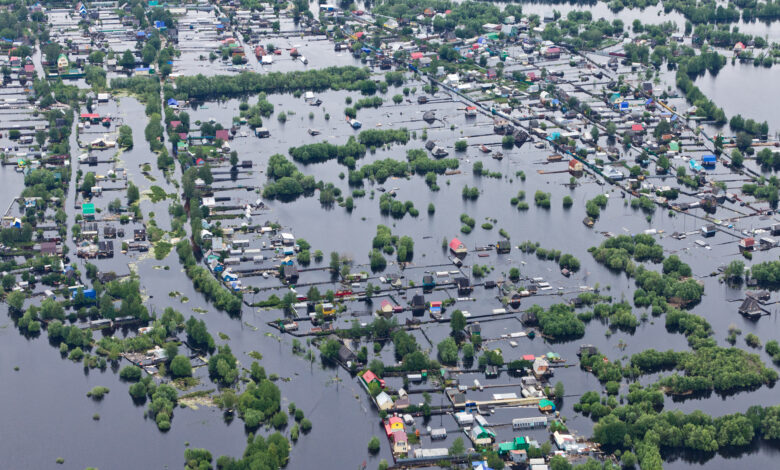Global Surge in Devastating Floods Sparks Concern: Is Climate Change to Blame?

In the first 11 days of September, the world has witnessed a distressing surge in catastrophic flooding events spanning four continents. From Libya to Greece, Turkey to Brazil, Spain to China, Hong Kong to the southwestern United States, the toll of these relentless deluges has been staggering. As climate scientists grapple with understanding the connection between these events and climate change, the urgency to address the implications of a warming planet becomes ever more apparent.
Andrew Hoell, a research meteorologist at the National Oceanic and Atmospheric Administration’s Physical Sciences Laboratory, noted the unusual clustering of these flooding events across the globe.
“Sometimes we have a clustering of these events, whether it’s in a given country, given hemisphere, or globally,” he explained. “And it seems like right now, globally, this is prime time for a number of flooding events.”
While the link between climate change and extreme weather is becoming increasingly evident, pinpointing the exact relationship between climate change and individual flooding events can be a complex task. On a broad scale, climate change intensifies the Earth’s water cycle. Rising temperatures lead to more evaporation, allowing a warmer atmosphere to hold more moisture. Consequently, storms can unleash more intense precipitation, leading to severe flooding. Global data since 1901 reveals an average increase of 0.04 inches per decade in global precipitation, according to the Environmental Protection Agency.
However, a multitude of factors can influence flooding events, making it challenging to attribute them solely to climate change.
Hoell explains, “From a 1,000-foot view, it’s definitely true that if you have higher temperatures, you have more water vapor, and therefore you can have more precipitation fall from the sky. But when you look at a specific event and the specific set of physical processes relevant to that event, it then becomes difficult to attribute every single process in that causal chain.”
The eight catastrophic flooding events this month had diverse origins. A Mediterranean storm named Daniel brought heavy rain to Greece and Libya. Typhoon Haikui drenched Hong Kong and southern China with record rainfall. Torrential downpours caused flash flooding in Spain, northwest Turkey, and Brazil’s Rio Grande do Sul state. Fast-moving thunderstorms in southern Nevada led to flash flooding, impacting the Las Vegas Strip and the Burning Man festival in Black Rock Desert.
In some cases, limited data availability prevents scientists from detecting long-term shifts associated with certain types of extreme flooding events, like those linked to Mediterranean cyclones such as Daniel. Moreover, local factors, including soil moisture levels and topography, play significant roles in determining the severity and consequences of floods.
While the global surge in devastating floods is cause for alarm, the situation in Libya stands out as particularly distressing due to the scale of the damage and loss of life. As the world grapples with these increasing climate-related disasters, it underscores the urgent need for concerted efforts to address climate change and its far-reaching impacts on our planet and communities.





